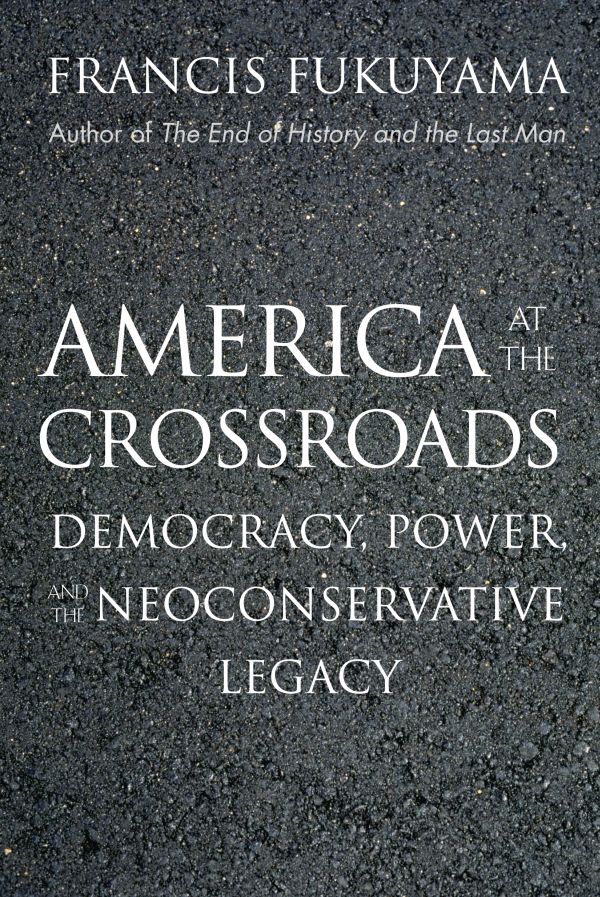 “While he remains sympathetic to the democracy-spreading mission, Fukuyama castigates the unilateral and militaristic turns that gave us such concepts as ‘preventive war,’ ‘benevolent hegemony,’ and ‘regime change.’ Neoconservatives, he contends, have abandoned their fundamental political insight, namely that ambitious schemes to remake societies are doomed to disappointment, failure, and unintended consequences. ‘Opposition to utopian social engineering,’ Fukuyama writes ‘…is the most enduring thread running through the movement.’ Yet neoconservatives today are bogged down in an attempt to remake a poorly understood, catastrophically damaged, and deeply alien semi-country in the Middle East. How did these smart people stray — and lead the country — so far off course?“
“While he remains sympathetic to the democracy-spreading mission, Fukuyama castigates the unilateral and militaristic turns that gave us such concepts as ‘preventive war,’ ‘benevolent hegemony,’ and ‘regime change.’ Neoconservatives, he contends, have abandoned their fundamental political insight, namely that ambitious schemes to remake societies are doomed to disappointment, failure, and unintended consequences. ‘Opposition to utopian social engineering,’ Fukuyama writes ‘…is the most enduring thread running through the movement.’ Yet neoconservatives today are bogged down in an attempt to remake a poorly understood, catastrophically damaged, and deeply alien semi-country in the Middle East. How did these smart people stray — and lead the country — so far off course?“
Um, well, maybe ’cause a lot of ’em read Fukuyama’s The End of History back in the day? Jacob Weisberg reviews Francis Fukuyama’s new book, America at the Crossroads, and, while it’s good to see principled conservatives take this administration’s egregiously inept Iraq policy to task, it’s also hard to believe that the neocons didn’t share Fukuyama’s earlier contention going in that “the universalization of Western liberal democracy as the final form of human government” was both an historical inevitability and in full flourish. Fukuyama can play the aggrieved realist now, but that’s definitely not how he made a name for himself.
